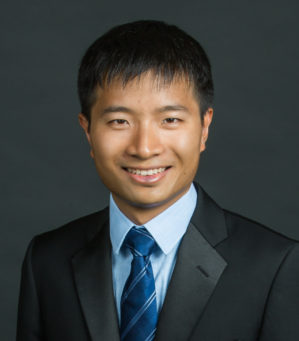
NEW YORK, February 12, 2020 — The Alfred P. Sloan Foundation is pleased to announce the selection of 126 extraordinary early career researchers as recipients of the 2020 Sloan Research Fellowships. Awarded annually since 1955, the fellowships honor scholars in the U.S. and Canada whose creativity, leadership, and independent research achievements make them some of the most promising researchers working today. A full list of the 2020 Fellows cohort is available at https://sloan.org/fellowships/2020-Fellows.
“To receive a Sloan Research Fellowship is to be told by your fellow scientists that you stand out among your peers,” says Adam F. Falk, president of the Alfred P. Sloan Foundation. “A Sloan Research Fellow is someone whose drive, creativity, and insight makes them a researcher to watch.”
Past Sloan Research Fellows include many towering figures in the history of science, including physicists Richard Feynman and Murray Gell-Mann, and game theorist John Nash. Fifty fellows have received a Nobel Prize in their respective field, 17 have won the Fields Medal in mathematics, 69 have received the National Medal of Science, and 19 have won the John Bates Clark Medal in economics, including every winner since 2007. A database of former Sloan Research Fellows can be found at https://sloan.org/past-fellows.
Fellows from the 2020 cohort are drawn from a diverse range of more than 60 institutions across the U.S. and Canada, “There is a wide variety of winning institutions, but each one has successfully attracted, retained, and nurtured truly promising junior faculty,” says Daniel L. Goroff, director of the Sloan Research Fellowship program. “The Alfred P. Sloan Foundation is proud to join with these institutions in recognizing and supporting scientific leaders of the future.”
Open to scholars in eight scientific and technical fields—chemistry, computer science, economics, mathematics, computational and evolutionary molecular biology, neuroscience, ocean sciences, and physics—the Sloan Research Fellowships are awarded in close coordination with the scientific community. Candidates must be nominated by their fellow scientists and winners are selected by independent panels of senior scholars on the basis of a candidate’s research accomplishments, creativity, and potential to become a leader in his or her field. Nearly 1000 researchers are nominated each year for 126 fellowship slots. Winners receive a two-year, $75,000 fellowship which can be spent to advance the fellow’s research.
About the Alfred P. Sloan Foundation
The Alfred P. Sloan Foundation is a not-for-profit, mission-driven grantmaking institution dedicated to improving the welfare of all through the advancement of scientific knowledge. Founded in 1934 by industrialist Alfred P. Sloan Jr., the Foundation makes grants each year in three broad areas: direct support of research in science, technology, engineering, mathematics, and economics; initiatives to increase the quality and diversity of scientific institutions; and efforts to enhance and deepen public engagement with science and scientists. Sloan Foundation grantmaking helped create some of the country’s most prestigious and enduring scientific institutions, including Memorial Sloan Kettering Cancer Center, the MIT Sloan School of Management, and the Sloan Digital Sky Survey. Sloan support has also played a critical role in the early development of many scientific fields, including cognitive science, behavioral economics, and indoor microbial ecology. The Foundation strives to be guided in all its actions by the values of the scientific enterprise: impartiality, empiricism, curiosity, rigor, and the conviction that a reasoned, systematic understanding of the forces of nature and society, when applied inventively and wisely, can lead to a better world for all.
About the Wharton School
Founded in 1881 as the world’s first collegiate business school, the Wharton School of the University of Pennsylvania is shaping the future of business by incubating ideas, driving insights, and creating leaders who change the world. With a faculty of more than 235 renowned professors, Wharton has 5,000 undergraduate, MBA, executive MBA and doctoralstudents. Each year 13,000 professionals from around the world advance their careers through Wharton Executive Education’s individual, company-customized, and online programs. More than 99,000 Wharton alumni form a powerful global network of leaders who transform business every day. For more information, visit www.wharton.upenn.edu.
###



